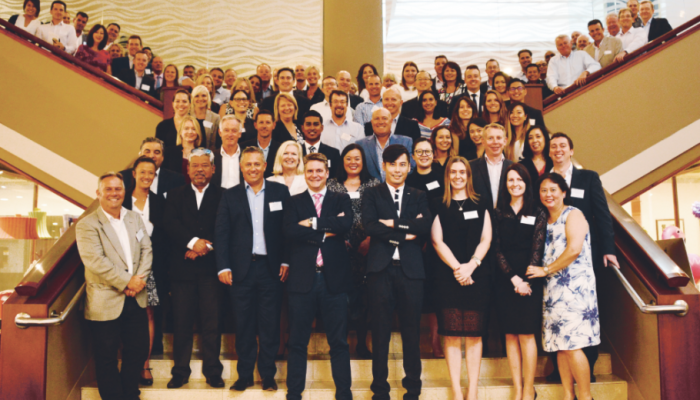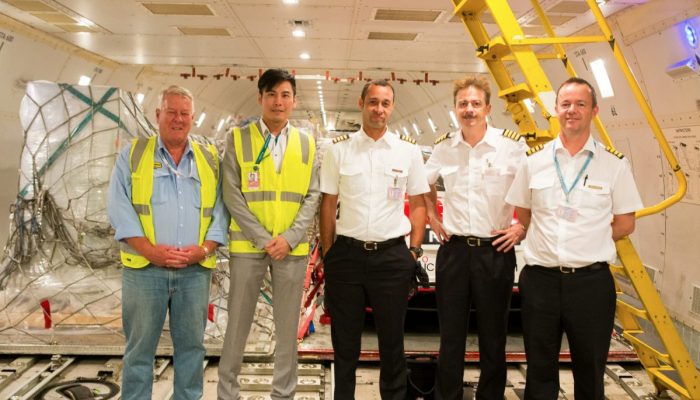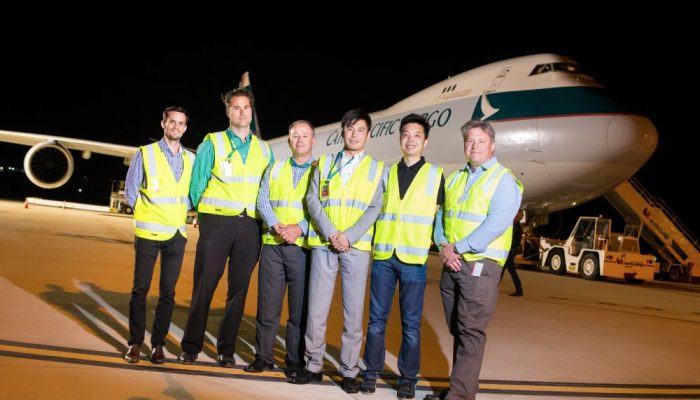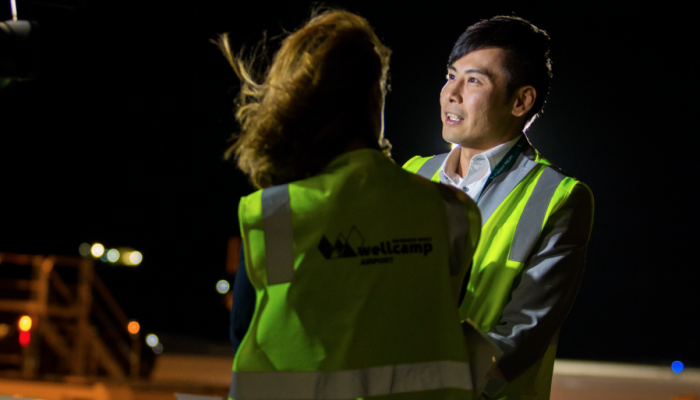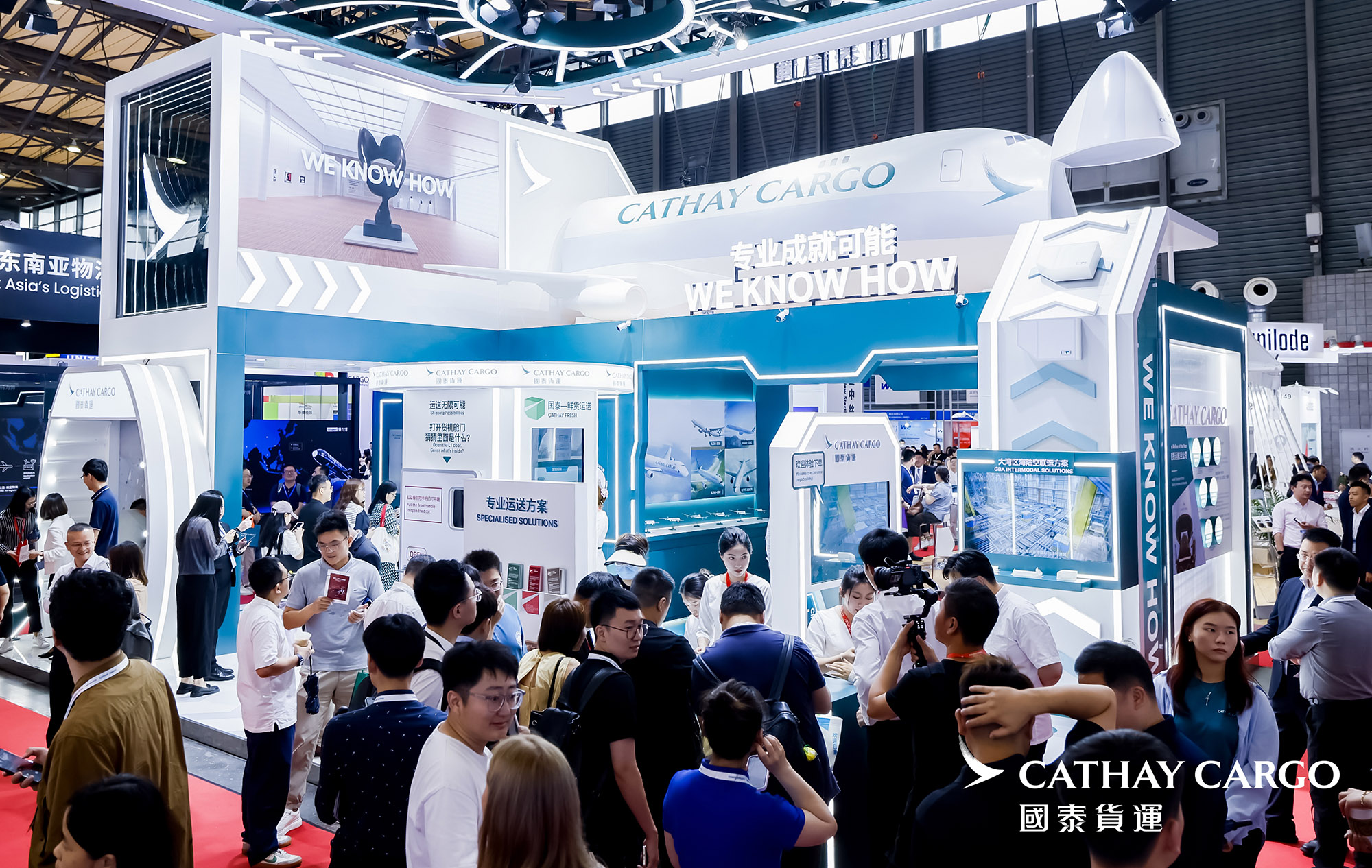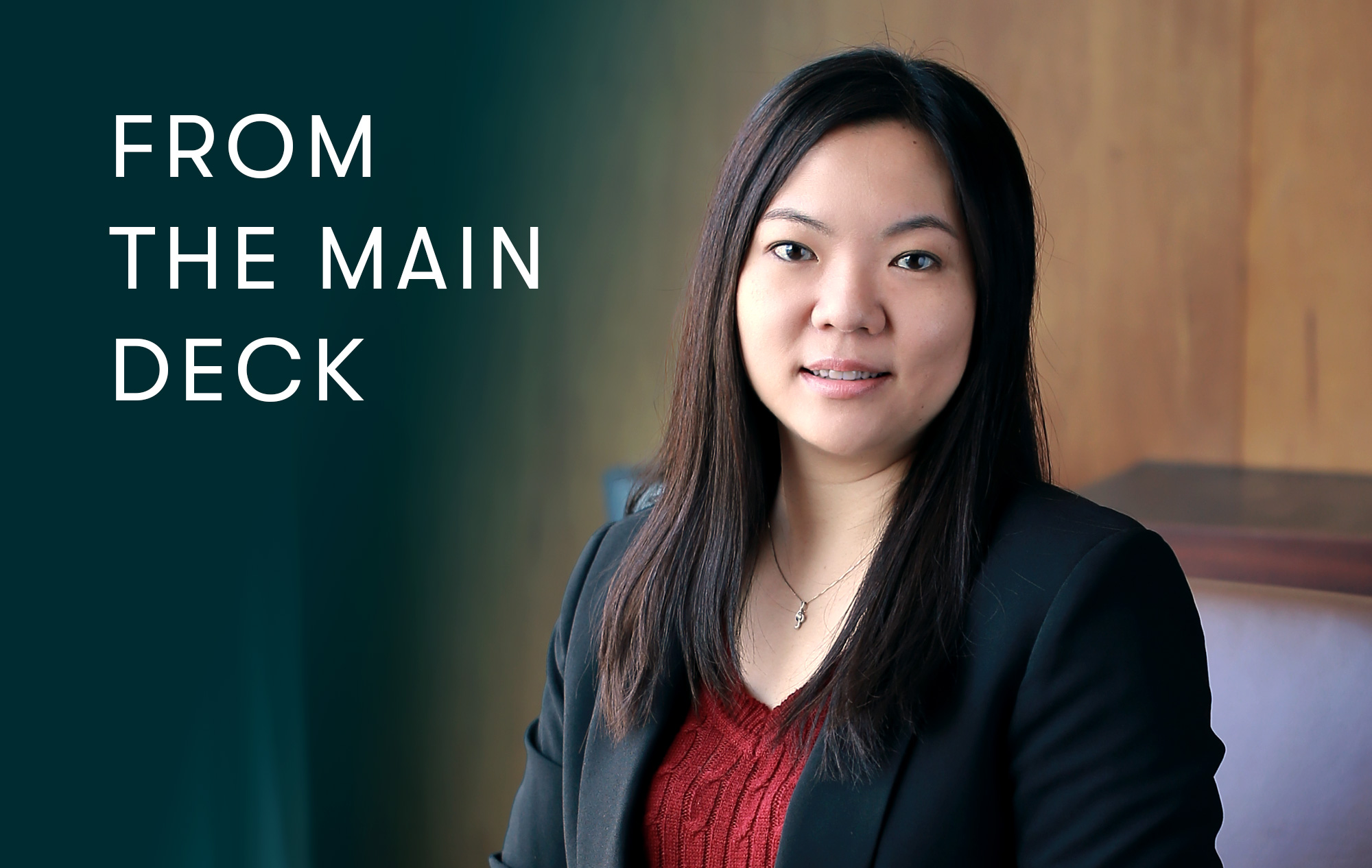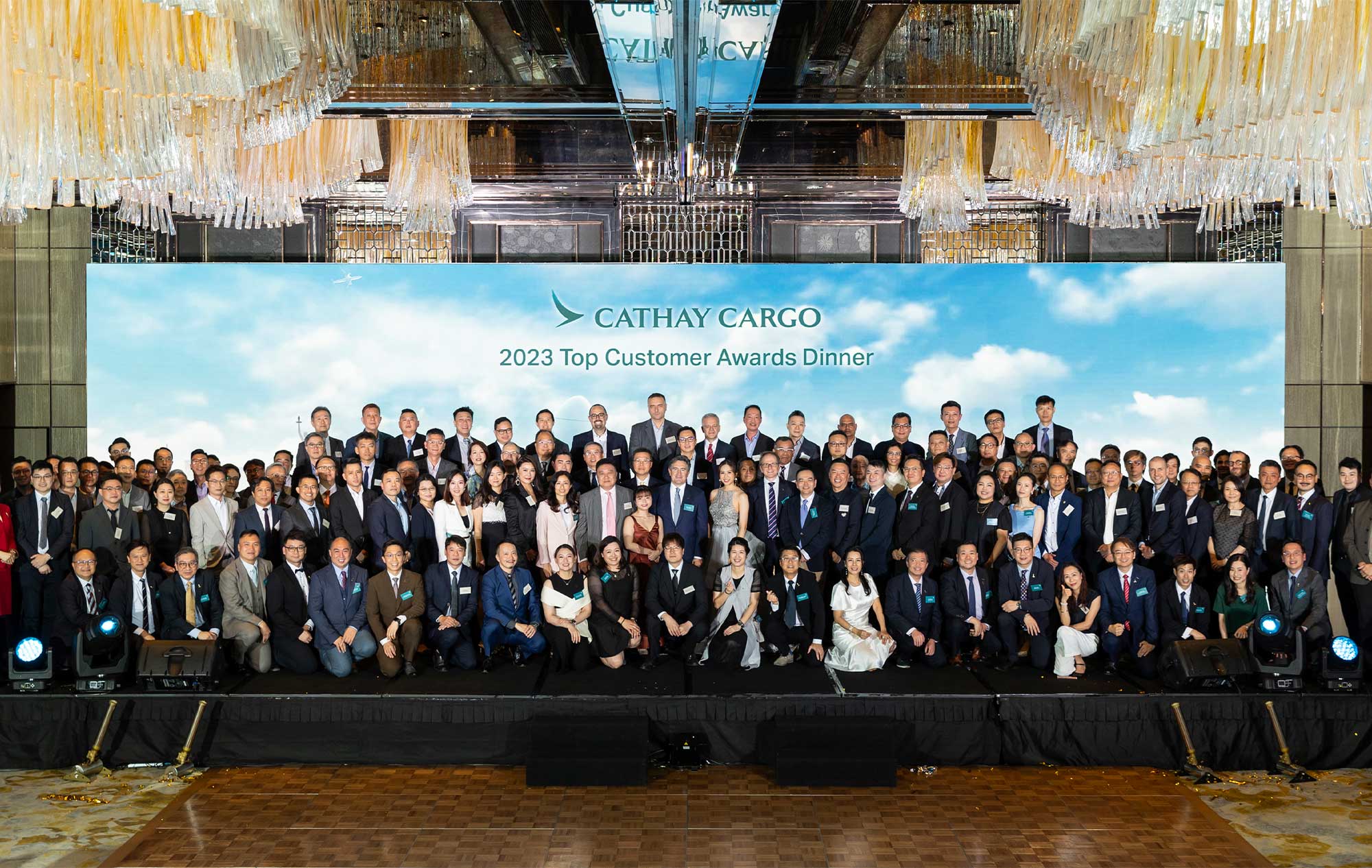Tell me a bit about yourself and your role
I’ve worked for Cathay Pacific for 20 years in which time I’ve had 11 roles. When I started, we had 60 aircraft, of which six were freighters. Now as a group, we have more than 170 aircraft and 20 freighters. Everything has tripled: the fleet, the amount of cargo we carry.
I’m not new to Cargo. About 10 years ago, I worked in the cargo sales office in Hong Kong for three years. Back then cargo was enjoying a boom, and so it seems fortunate that I’m with cargo again during an upswing.
Prior to coming back to Cathay Pacific Cargo I was GM Southwest Pacific, so I helped support and set up the freighter operation at Brisbane West Wellcamp. This is the kind of project that is important for us to pioneer and it’s vital to keep looking for new opportunities like this.
But now the scope of my job is much bigger. This remains very much a people business, which is why cargo agents are so important to our business and why these relationships are central to what we do.
What particular areas will you be looking at in your role?
One area that will be crucial is partnerships. Whether it is our joint venture into/out of Europe with Lufthansa or the wet lease arrangement for additional freighters with Atlas Air, or finding a codeshare partner, its important to find these strategic links because it gives us the ability to grow in a more controlled risk environment.
We will continue to drive productivity for the industry, not just internally, but also in in terms of supporting initiatives such as Cargo iQ. Cargo is a complex business in terms of the many stakeholders – shippers, agents and customs. All these different functions need to talk to each other on a common platform to understand the movements of shipments. And that’s what our customers demand of us.
Will you be working more with shippers now?
Each of the parties have their role, but sometimes shippers want to understand the value of the airline. It’s our role to promote Cathay Pacific, and why they should choose us over the alternatives. But whether it’s about negotiation or putting the deal together, that still rests with the agent. We are not an integrator, so there are a lot of things where the agent brings a lot of value to the shipper and that should continue.
What is your vision for the business?
I think our role has to be about complementing what our agents and business partners do by offering a suite of services to best meet the needs of consignees and shippers.
We also have to look at productivity. The margins in aviation and our business are not high, so we do need to get that right, and we need to give our customers every reason to purchase air freight and see it as a value-for-money proposition.
It is also our role to add value to the overall supply chain and promote the idea that Cathay is more than just a link in the chain. Together, we can come up with better products and services, which will be better for business. Cargo can’t be just about rates because that’s a zero-sum game. While cost is important we also have to offer things that the end consumer values.
Being digitally enabled and insight-driven to understand our customers is going to be central to everything we do moving forward in helping us to become efficient and able to identify the areas to improve. Like how do we increase load factors, make better use of space and how we reward agents who work on the initiatives that jointly drive productivity.
Will Cargo coming under the Commercial umbrella make this easier?
Reporting directly to the airlines’ commercial department makes a lot of sense. In commercial terms, Cathay Pacific Cargo makes up more than 20% of the airlines’ overall revenue.
It also allows Cargo to be among the key stakeholders and given priority to take part in decisions on aircraft deployment and purchases – even down to day-to-day payload uplifts.
After all, just over half of our business is about uplift into the belly holds of our passenger aircraft. And that will continue to grow with our new fleet of Airbus A350-900s and the -1000s from next year. We are seeing increasing demand for e-commerce, for which you don’t necessarily need the big main deck pallets. Our passenger aircraft fly frequently, with a wider network to get shipments point to point.
How will the job role change?
The principles and the job remain the same. We pretty much oversee all commercial needs of cargo customers. Whether it’s the time of day, frequency, destinations we want to fly to, or serving our customers by finding key partners outside of using our own metal. We also work with our service delivery team to ensure that we offer the quality of services our customers demand.
Do you see the growth carrying on compared to the second half of last year?
The signs are that the cargo industry will be strong and robust. The macro part of the business is on the up. Hong Kong is the hub of Asia and of the world’s international freight movement. Being based here puts us in the best position to see that improvement.
We are seeing a good balance, both in and out. Part of that is mostly driven by e-commerce. In terms of capacity growth, the increase in supply you see has been meeting the increase in demand rather than the oversupply of capacity of the past seven or eight years.
What are the challenges and opportunities?
Safety and security is both a threat and opportunity. Cathay will put lots of effort in working with bodies like the TSA to get it right. We are all for security, and keen for this to be done in a productive way that makes good business sense.
Then we have heard a lot about the One Belt One Road initiative, and that brings with it competition. Not just air, but also road, sea and rail. But the good thing is that this initiative opens up greater demand. And if you look at the trends, there is a big need for just-in-time shipments. E-commerce, is one, but not the only one. Hong Kong is very much one of the key stops for China. The infrastructure developments will allow Hong Kong to become a more significant gateway for southern China.
In terms of meeting customers, has this process already started?
Yes, this was part of the handover with Mark. The first thing we did was meet customers and other key partners, to understand what our customers want, what we need to improve and why they choose Cathay. I will spend a good chunk of time doing that and to have that engagement, either one to one or collectively.
Our business is split roughly 40-60 between Hong Kong and the rest of the world. That gives me good reason to travel to better understand the business and our teams – and a lot of global partners are not based in Hong Kong. We need to ensure that the consistency and quality of service is the same no matter where we serve.
When you are not at work, what do you do?
I have twin boys who are three months old. They are very demanding but they give me a bit more balance, and this is the next chapter of my life!
As I grew up in Australia, I enjoy all sport. The key one for me is football – Aussie Rules Football. I’m from South Australia and I support Port Adelaide. Cathay Pacific are their airline supporter, so my Australia colleagues did a great job to organise that deal.
In Aussie culture, social gatherings are high on the list. I enjoy that balance of business and leisure. You are catching up with good friends and even business associates, too.




